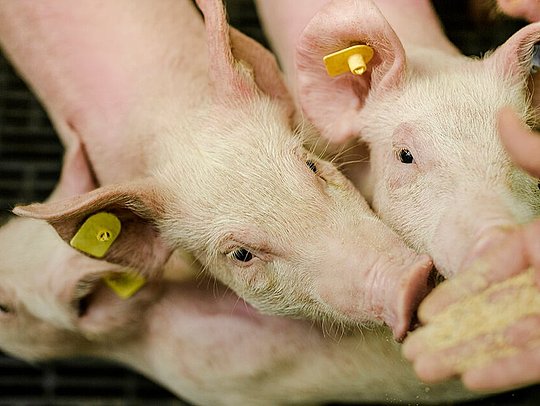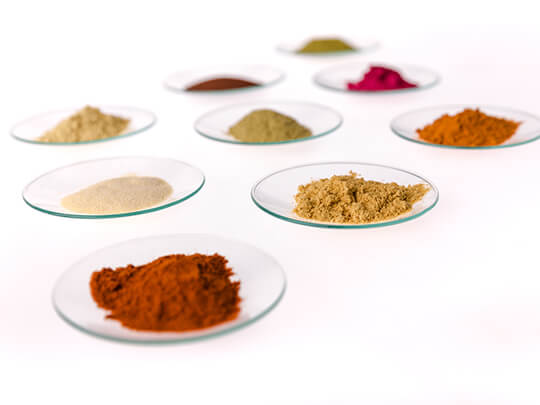Keeping pace with challenges in pig production part 2
The challenge: a growing demand for meat, consumers awareness for food safety and sustainability in efficient pig production. The solution: Phytogenic feed additives (PFAs). In part one, weaning, with the associated difficulties that might occur in this critical phase in pig production and phytogenics as promising tool to counteract, were the focus. In part two it remains exciting, as we will come up with the effect of PFAs on enzymatic activity, antioxidant characteristics and emission reduction in pigs.
Increased enzymatic activity in the intestinal tract

Pancreatic digestive enzymes, protease, lipase and amylase are essential for breaking down feed components. Their secretion rate and activity are critical factors for the better and more complete digestion and nutrient absorption. Selected phytogenics have shown beneficial effects on production and activity of pancreatic enzymes, bile secretion and brush border enzymes in the digestive tract.
Thus, improved digestion of the feed results in higher nutritional value and enhanced animal performance (mainly FCR).
Oxidation is a natural process in cells - the final products are free radicals.

During pig’s lifetime, various stressful conditions like weaning, feed change, poor ventilation, overstocking, heat stress and transport may increase oxidation processes and thus, the production of free radicals. Overproduction and accumulation of free radicals can cause protein and lipid oxidation as well as DNA cell damage. Many aromatic plants and/or their essential oils have been studied for their antioxidant activity.
Those plants contain active components, called “phenolic rings”, which have the ability to catch the free radicals. In addition, many non-phenolic components have antioxidant properties by supporting the “internal” antioxidant defense mechanism. They enhance gene expression for the antioxidant enzyme production.
Emission reduction of noxious gases
Animal production is responsible for a large amount of noxious gas production, especially ammonia. Specific plant components have shown to reduce considerably ammonia production from swine units. This benefit is not only for the good of the environment, but also improves air quality in the barns, which again improves animal welfare and working conditions for the employees.
Studies have shown that the combination of active ingredients in Aromex® Pro improves feed conversion ratio and average daily gain while reducing ammonia emissions, thus supporting profitability of pig fattening (Average data of 12 trials with Aromex® Pro in grower-finisher pigs on performance parameters and average data of 5 trials with Aromex® Pro in grower-finisher pigs on ammonia reduction).
Be it for reasons of flavouring, preserving, or healing – plants have always played an important role in humans
Over the last years, plant derived additives have successfully found their way also into animal nutrition – and justifiably so!
Phytogenic feed additives have shown many beneficial effects in swine nutrition, such as improved palatability and feed intake, enhanced feed conversion as well as ammonia emission reduction. Relating to the proven beneficial characteristics, phytogenic feed additives are foreseen to have the potential to become a new generation of substances, respectively additives for innovative pig nutrition and welfare and thus, being able to contribute to a profitable production - perhaps soon a crucial tool for keeping pace with upcoming trends and challenges in pig production.

Sandra Chamusco
Global Technical Manager Swine at Delacon Sandra Chamusco has a degree in Animal Science at the University of Évora in Portugal and has been working in swine nutrition for more than 20 years. She was a feed formulator and customer consultant, technical responsible and Director of Operations at the Portuguese subsidiary of the French group CCPA. After that she was Director of Swine Nutrition Department at T.N.A. (Portugal). At Delacon,Sandra is responsible for product development and product support, and for the customer technical services for the complete range of Delacon’s swine products on a global level.










